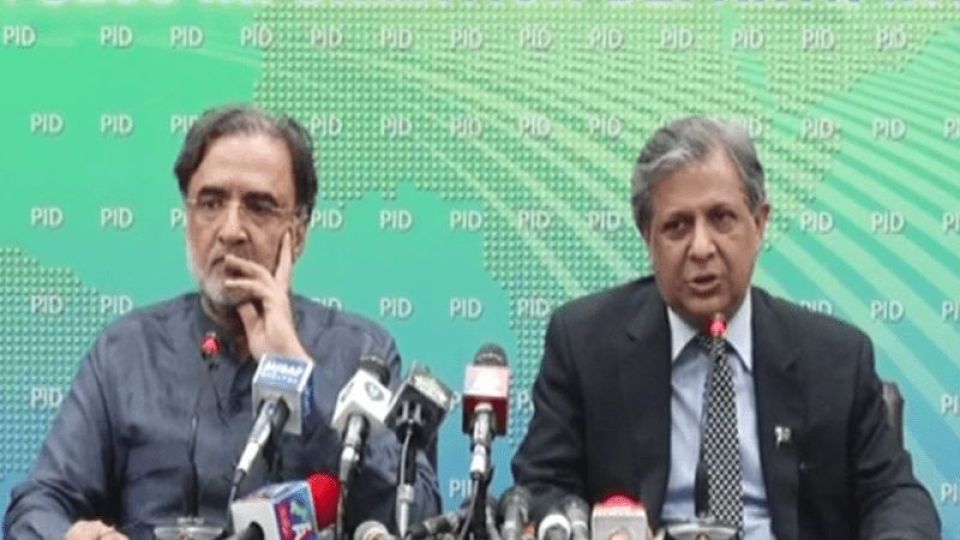September 23, 2022
ISLAMABAD – Minister for Law Azam Nazeer Tarar on Thursday rejected criticism over the Transgender Persons (Protection of Right) Act, saying that “some friends” had created a misconception that the law had opened doors for homosexuality and was repugnant to Islamic injunctions.
The National Assembly had enacted the Transgender Persons (Protection of Right) Act in 2018 to provide legal recognition to transgender persons and ensure that discrimination against transgender persons in various walks of life shall be punishable.
The law was made after the Supreme Court held on Sept 25, 2012, that eunuchs were entitled to all the rights guaranteed by the Constitution and enjoyed by other members of society.
However, recently the bill was opposed by some sections of society. At a press conference on Wednesday, JUI-F chief Maulana Fazlur Rehman said that it was against Islamic injunctions.
“Our team is busy preparing a draft which will be tabled in the assembly soon. No law that is against the spirit of Quran and Sunnah will be allowed to be passed as the parliament has no right to pass any bill that runs counter to the Quran and Sunnah,” he added.
At a press conference alongside Adviser to PM for Kashmir and Gilgit-Baltistan Qamar Zaman Kaira today, Tarar clarified that the bill was passed by the Senate and National Assembly in the presence of religious and political leaders.
“Whenever a law is passed, there is always a chance of weakness or misuse [of it]. Here too, complaints started coming after two years on a provision that there was a possibility that sections 3 and 4 could be misused.”
The minister elaborated that according to the aforementioned sections, after reaching the age of 18 years, transgender persons could “declare their genders” on their identity cards.
“Like when we fill our forms it is written there whether you are a male or female […] God has protected us from those disabilities […] so they had the right […] a section was made for them […] transgender he or she which is male or female transgender.”
Later on, Azam said an amendment was introduced. “JI Senator Mushtaq Khan said that this provision where transgender applicants were given an option to mention their gender […] it should be amended and made conditional after opinion from the medical board.”
This matter, he went on, was under discussion in the parliament. However, soon after, two petitions were filed in the Federal Shariah Court, the minister said. “The prime responsibility of the shariah court is to see whether a law is against the shariah and the principles of Islam.”
Tarar revealed that the government had submitted its responses on the pleas as well.
But, he said that “some friends” twisted this matter and claimed that the law was encouraging homosexuality. “It is also being perceived that entire law is completely negative.”
Subsequently, Tarar outlined the provisions of the law, starting off with the definition of a transgender person and contending that the law “nowhere says that any person can be a transgender themselves”.
“The first two provisions are being read in isolation when the matter of registration came up.”
There were also two provisions regarding recognition and identity. But, the matter will only be changed after the verdict of the shariah court, he said.
Apart from that, Tarar stated the law talks about discrimination, sexual harassment, the right to inheritance, the right to education, the right to health, and the right to employment for transgender persons.
“The reason for interacting with you today is that this is not about those arguments, this is about Constitution, law, shariah and human rights.
“We request you to spread this message further. And I expect the Pakistani people to [understand] that these people [transgender persons] are Pakistanis, they are a part of the society […] we can at least look at them in the society in a way which doesn’t violate their rights,” the minister added.
Meanwhile, PPP’s Kaira said that the law was not new and had been passed in 2018. “There is no need to create hue and cry over it. These days social media has become a platform for fake news and it is being used to create polarisation in the country.”
He said that the categorisation of gender in the law was “if anything, a way forward”.
“If this was not done, these things could be abused. And there is another big problem of inheritance […] hence, to remove all these anomalies, this amendment was introduced. And we believe this should be appreciated.”
Kaira added that the amendment was also a demand of transgender activists.
“They are our children. They are our brothers and sisters. We can’t exclude or disown them.”


